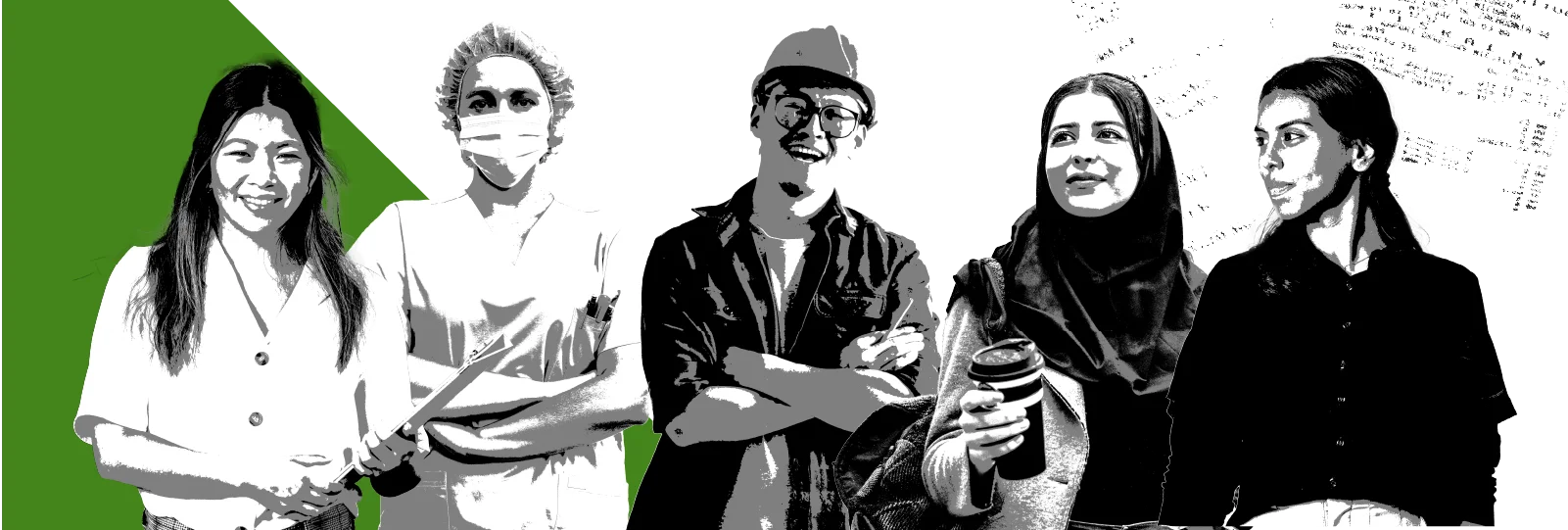Bill the billionaires. Tackle inequality.
Today billionaire wealth is skyrocketing, while hundreds of millions of people go hungry globally and everyday Australians are struggling. It’s time billionaires pay their fair share of tax.
Sign the petitionSince 2020, billionaire fortunes have increased by $5 trillion
All lives are equal and no one should live in poverty. Yet, more than 685 million people still live in extreme poverty, made worse by the global cost of living crisis.
This extreme inequality is seen in countries across the globe, including in Australia. Wealth inequality in Australia is at a 70-year high.
Today, people are doing it tougher than ever
The cost of living is mounting, interest rates are skyrocketing, and real wages (wages compared to purchasing power with inflation) fell by nearly 5% in 2022. It’s estimated that half a million Australians are struggling to put food on the table on any given day.
Meanwhile, the richest 1% of Australians have accumulated 10 times more wealth than the bottom 50% over the past decade. That’s more than $2,500 per second for 10 years straight.
The COVID-19 pandemic and the war in Ukraine have only made things worse. Australian billionaire wealth is 71% higher than it was in 2020 and there are 16 more billionaires today than there were in 2020.

Our economic system is failing, but we can fix it
At Oxfam, we’re working towards a fair and equal future without the systemic inequalities and injustices that keep people in poverty – both here at home and abroad.
Over recent decades, big corporations and wealthy individuals have used their power and influence to rig our economy in their favour, to obtain generous government subsidies and to pay lower taxes than the rest of us.
Oxfam believes our government must keep powerful corporate and billionaire wealth in check and make our economic system work for all of us, equally.
It’s time to bill the billionaires
To balance the scales and create a fairer society, we need to bill the billionaires and prioritise funding towards poverty alleviation.
With this tax income, the government could boost funding to the public services we all need and cherish, like quality healthcare and education, strengthen the social safety net to alleviate poverty, and increase aid to our Asia-Pacific neighbours.
Bill the billionaires. Make tax fair
Please sign our petition calling on the government to bill the billionaires and fight greed and inequality.
MAKE TAX FAIR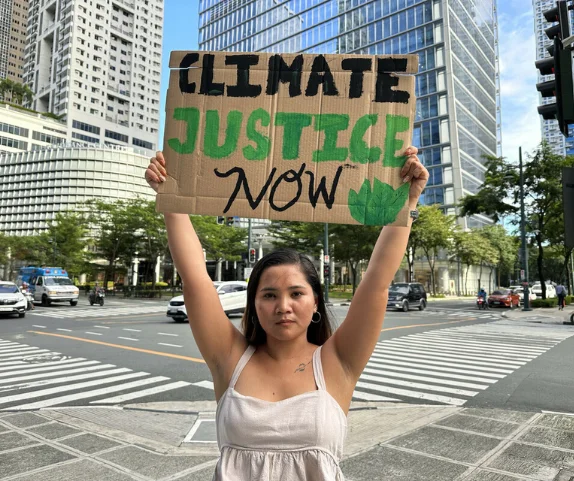
The world’s richest are causing dangerous climate change
Research by Oxfam has revealed that the super-rich are causing climate destruction.
The richest 1% of the world’s population are responsible for as much climate pollution as the five billion people who make up the poorest two-thirds of humanity.
Emissions from private jets and yachts are thousands of times higher than the average person’s emissions, which is unacceptable and unsustainable.
If we include emissions from billionaires’ destructive fossil fuel investments, then their carbon emissions are over a million times higher.
This is not simply a rich versus poor countries divide: there are huge emitters in low-income countries, and low emitters in wealthy countries like Australia.
In Australia, the wealthiest 1% by income create 33% of carbon emissions, while the bottom 50% create just 20% of emissions, despite representing 10 million more people.
The top 1% of Australians create more carbon pollution than all 14.7 million passenger vehicles in the country!
That’s why the rich should contribute the most to reducing emissions, and people living in poverty should be given the capacity to cope with the transition to clean energy, and to adapt to disasters fuelled by climate change. Unfortunately, the opposite is happening.
The world’s poorest people are already struggling with disasters fuelled by climate change, like floods, fires, droughts and cyclones.
Meanwhile, big corporations and billionaires continue to make huge profits from climate destruction and dodge taking meaningful action.
Growing inequality is a choice
For a long time, if you earnt a decent wage in Australia you could afford to buy a home and live a comfortable life. This has shifted significantly in recent years.
Research shows that between the 1950s and 1980s, economic growth in Australia benefited people across the wealth spectrum.
In the last 10 years, 93% of economic growth has benefited just the top 10% of income earners
This is a reflection of the difference between the vast majority of us, who rely on stagnating wages for our income, and the wealthiest 10%, who grow their fortunes via ownership of investment properties or stocks in a small number of big corporations making super profits.
It also reflects deeply unfair tax concessions and discounts that primarily benefit the top end of town, such as the capital gains tax discount, where income from investments is taxed at half the rate of income from wages. Why do the wealthy investors get ‘tax discounts’, while workers don’t? It’s simply unfair.
The top 20% of the wealthiest people in Australia have 230 times more wealth than the bottom 20%
Buying a home is out of reach for most of the younger generations, while the wealth of those at the top continues to grow exponentially.
While Australia is among the worst in wealth concentration to top income earners over recent years, we are not alone in this trend. Inequality is skyrocketing globally. At a time when progress on eradicating extreme poverty has halted, the rampant growth in extreme wealth by the top 1% is stark and heart-breaking.
The systems are rigged in their favour
Many billionaires and big corporations have used their power and influence to rig the system in their favour. They pay little or no tax and receive billions in cash handouts (subsidies) from the government, despite making gob-smacking profits year on year.
Current economic models have failed us. Unjust systems have concentrated power and wealth in the hands of a few, at the expense of billions of people. For too long, the world’s economies have valued financial growth above all. But history has shown us that financial growth does not end poverty.
Growing inequality has been a deliberate choice
Inequality and poverty are a result of deliberate policy choices and economic systems that protect the super-rich and corporations, and exclude others.
Oxfam is fighting to end the greed and destruction caused by many billionaires and big corporations. We are holding the government to account for its choice to keep income support payments below the poverty line, instead of billing the billionaires. We are fighting its choice to spend billions of dollars on subsidies for fossil fuels for big corporations, while doing little for our Pacific neighbours living on the frontline of the climate crisis.
Together, we can push for a more equal world
We know that, together, we can push this government to choose differently. With the money available from billing the billionaires and reducing subsidies for big corporations, our government can do more to increase aid and essential services that lift people out of extreme poverty.
Join us in calling on the government to make tax fair:

Stop short changing our community by giving reduced tax rates to billionaires, big corporations and people on high incomes

Make billionaires, big corporations and the super-rich pay more tax, especially when they make massive windfall profits off crises like a global pandemic, the war in Ukraine or interest rate rises

Stop giving billions in subsidies (i.e., cash handouts) to polluting fossil fuel and transport corporations already making billions in profit
FAQs
How many billionaires are in Australia?
There are 46 Australian billionaires on Forbes list of the world’s wealthiest people as of January 2024. Gina Rinehart tops the list with a net worth of $30.8B. Her wealth comes from iron ore and she is also Australia’s second-largest cattle producer.
There are 16 more billionaires now in Australia than there were in 2020, before the COV-19 crisis.
How do the rich avoid taxes?
The richest Australians have many ways to avoid paying their fair share of taxes. Australia has many tax arrangements that allow very high income earners to reduce their tax rate, including family trusts and discretionary trusts, negative gearing, super contributions, and capital gains discounts.
The ultra-wealthy often claim they have no income at all. As much of their wealth is invested in big corporations, they are able to borrow big sums of money to fund their luxury lifestyle, which has far lower interest rates (perhaps 5-6%) than their tax rate would be (45%). In this way they give nothing back to the community, despite their extreme wealth.
Research shows billionaires have an effective personal tax rate of 0-0.5%.
How can we ensure billionaires and the ultra-wealthy pay tax?
Implementing a wealth tax globally would significantly help with tax avoidance by the ultra-wealthy. A wealth tax is a tax on an individual’s wealth, including shares in corporations, real estate, trusts, cash and other assets.
Economic experts have suggested that just a 2% wealth tax on billionaires could raise USD$250 billion each year for governments to spend on much needed public services and measures to end poverty.
Our campaigns
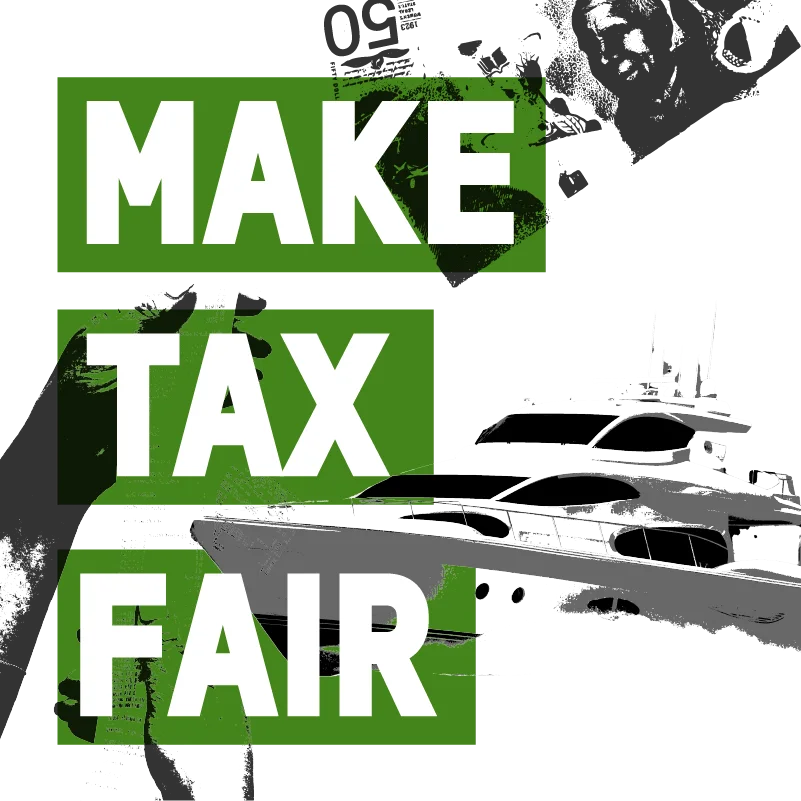
Make Tax Fair
Today, more big corporations and billionaires than ever are raking in super profits, while hundreds of millions of people globally go hungry and everyday Australians are struggling with rising costs. It’s time to ensure big corporations and billionaires pay their fair share of tax.
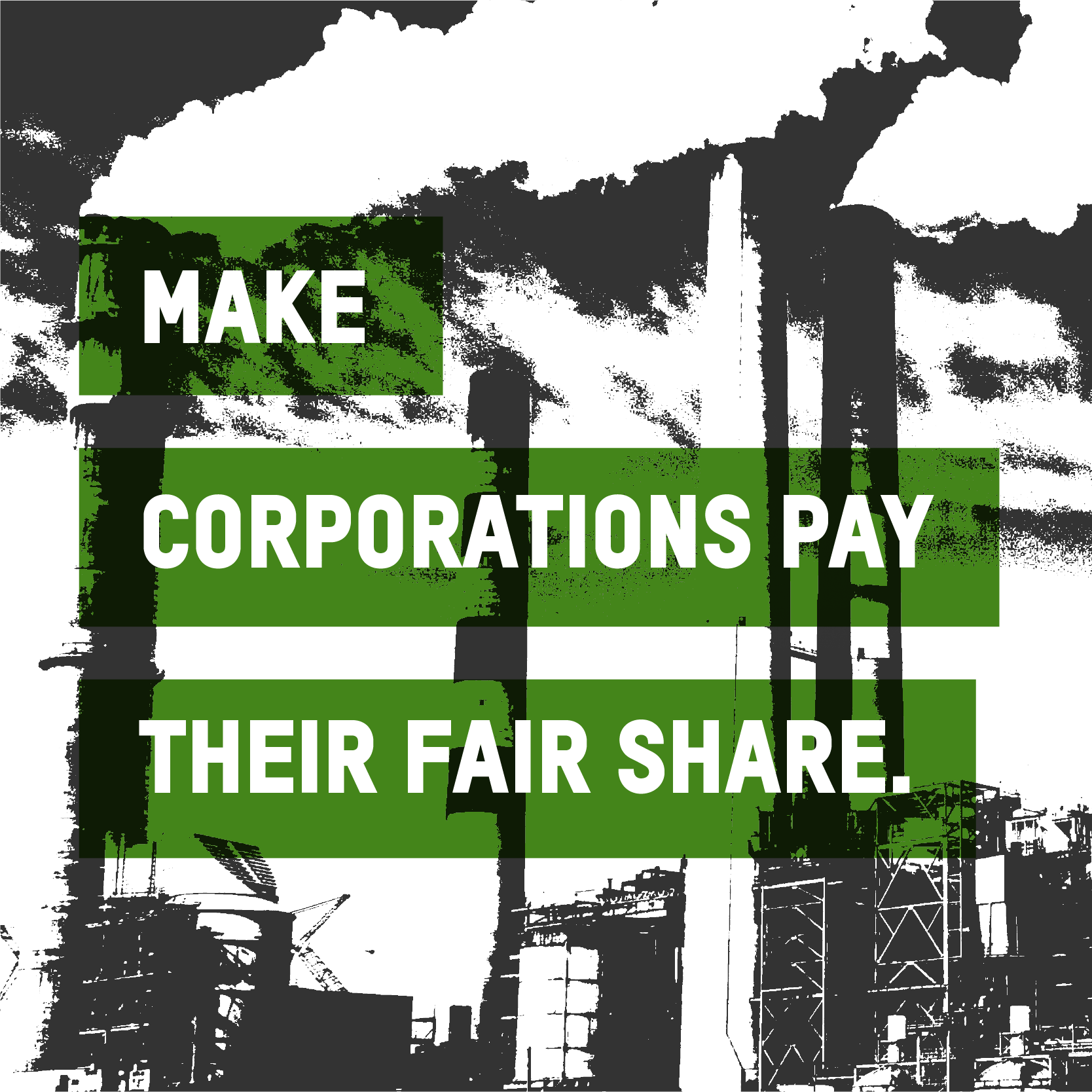
Make corporations pay their fair share
Many big corporations are making super profits, often during times of crisis. They jack up their prices under the cover of inflation and avoid paying their fair share of tax. It’s time they gave back to the community.
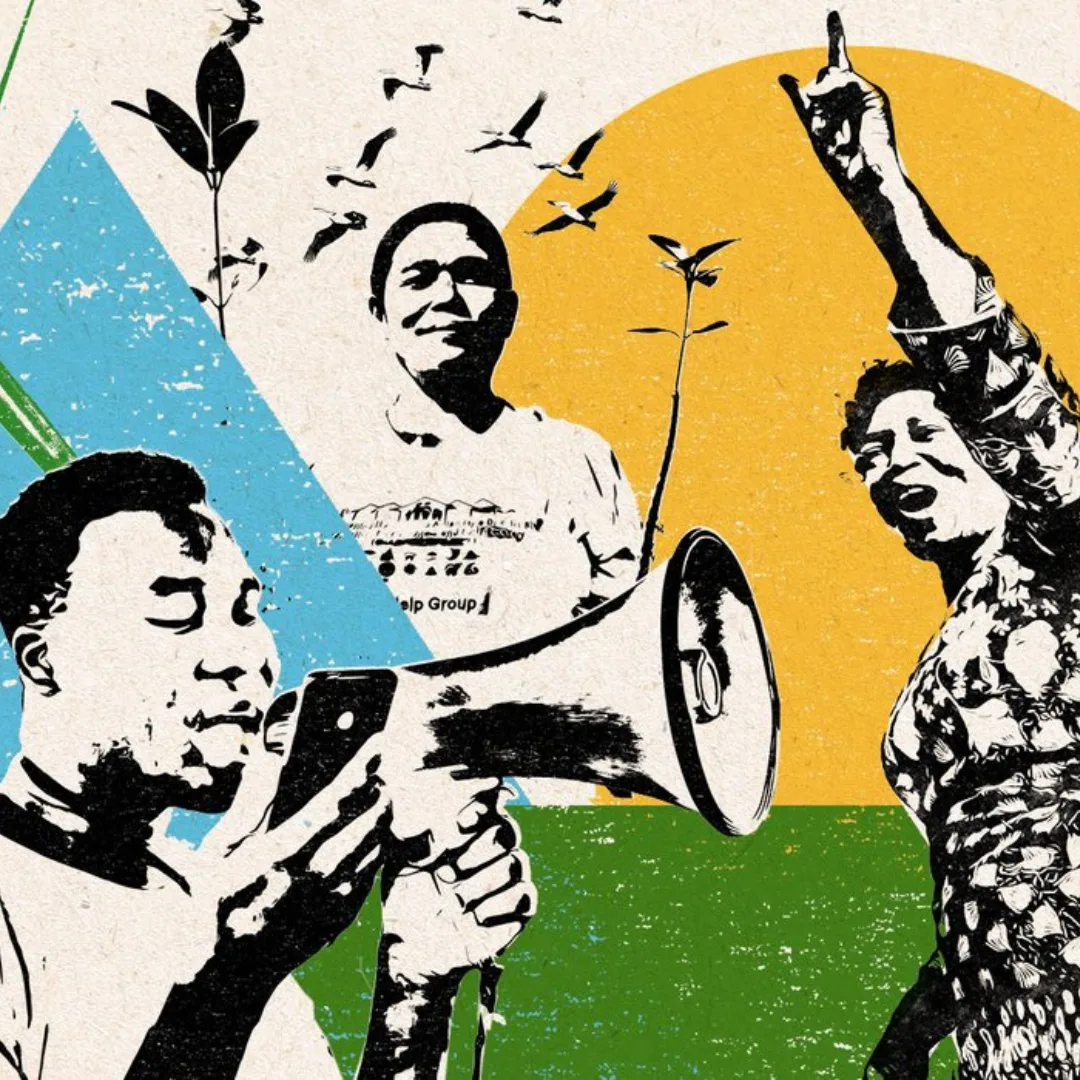
Make Polluting Corporations Pay
Big energy corporations and billionaires are most responsible for the climate crisis. It’s time to tax rich polluters, end fossil fuel subsidies and use the funds to support communities already experiencing the destructive impacts of climate change.

